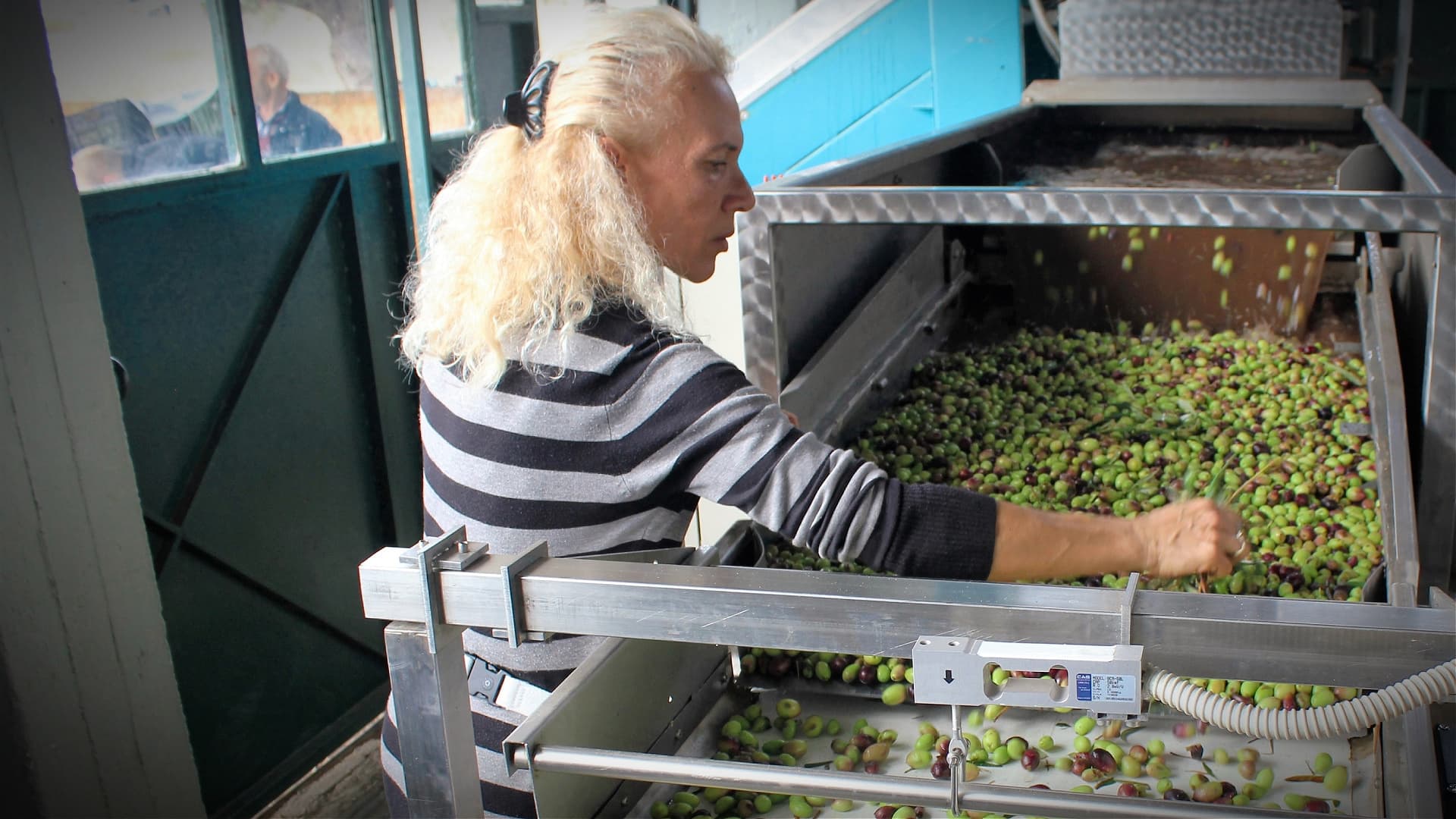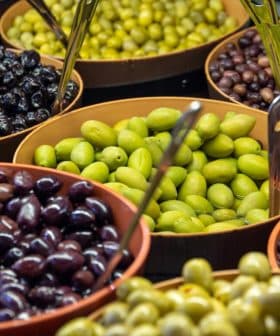 18.0K reads
18.0K readsBusiness
Bulk Exports from Greece Help Fuel the Italian Olive Oil Industry

Greece is the second-largest supplier of olive oil to Italy, with more than 75 percent of Greek olive oil exports going to Italy in bulk in 2021. Greek producers struggle to export branded olive oil to Italy, as Italian importers usually pay less for Greek olive oil and the Italian market is dominated by domestic brands.
Greece is consistently the second-largest supplier of the Italian olive oil industry after Spain covering a significant part of Italy’s demand for imported olive oil each year, according to an analysis of the Italian olive oil sector by the Office of Economic and Commercial Affairs of the Greek Embassy in Milan.
In 2021, more than 75 percent of Greek olive oil exports went to Italy in bulk, the analysis found. In other words, Greece supplied more than 111,000 tons of the 500,000 tons of olive oil Italy imported, representing 22 percent of all Italy’s olive oil imports last year.
Exports of Greek olive oil in bulk are not to blame for the country’s limited exports of branded olive oil. The issue is mainly due to the inefficacy of domestic exporters.
On the other hand, Spain, the world’s largest producer and exporter of olive oil, accounted for more than 60 percent of the Italian olive oil imports that year.
Total exports of Greek olive oil of all grades reached 146,000 tons in 2021 and were valued at €533 million, while 165,000 tons valued at €470 million were exported from the country in 2020.
See Also:Olive Oil Trade NewsThe figures indicate that Italy is the largest buyer of Greek olive oil. However, the oil from Greece flows to neighboring Italy in bulk, with Greek producers and exporters routinely failing to gain the added value of branded olive oil.
Additionally, the report said that Italian importers usually pay less for Greek olive oil than oil produced in Italy. Based on historical data, until 2020, a kilogram of imported Greek extra virgin olive oil cost Italian traders less than €3.00 compared with the price at origin in Italy of around €3.70.
According to Medit Hellas, a company based in Patras that exports unpackaged olive oil to Italy and other countries, Greek producers are largely dependent on Italian traders when looking to sell their oils.
“The large producing and bottling companies of Italy call the shots in the Greek olive oil sector to a great extent,” the company’s owners told Olive Oil Times. “They come each year and buy large amounts of Greek olive oil.”
“Italy bottles 800,000 to 900,000 tons of olive oil each season,” they added. “With the country’s production ranging between 250,000 and 300,000 tons, they need a lot more olive oil, which they buy from other producing countries, including Greece and Spain.”
“Greek olive oil is generally pricier than oils of other countries, but Italians buy it in large quantities and always in bulk to make blends,” the Medit Hella owners continued. “The Italian market for olive oil is dominated by domestic brands. We are unaware of a single Greek producer exporting branded olive oil to Italy.”
It is also common practice for Italian commercial agents to travel to Greek olive oil-producing regions to monitor how the season is evolving and what to expect in terms of quantity and quality.
Last spring, Italian importers paid a visit to the area of Laconia in the southern Peloponnese to take a closer look at the flowering of the olive trees.
Petrina’s agricultural cooperative in Laconia, one of the first olive oil associations in Greece founded more than a century ago, has long been exporting olive oil to Italy.
“Around 30 to 40 percent of the olive oil we produce each year is exported to Italy in bulk,” the cooperative told Olive Oil Times. “We also export packed branded olive oil to other countries, including the United States and Canada. However, we haven’t yet figured out how to send bottled olive oil to Italy.”
“We produce and export only extra virgin olive oil of top quality,” they added. “Of course, despite the high standards of our olive oil, we do not get a premium for our exports to Italy since our oil is shipped unbranded.”
Around 30 percent of the olive oil bottled in Italy is exclusively of Italian origin, the report said, while the widely accepted high-quality of Italian olive oil is critical to its success in global markets.
In addition, the long-standing practice of Italian bottlers acquiring olive oils from other countries and blending them has resulted in blended olive oil being registered in consumers’ consciousness globally as an exclusively ‘Made in Italy’ product.
A few years back, Costco, the world’s sixth-largest retailer, switched from Italian to Greek olive oil for its Kirkland signature extra virgin olive oil blend due to supply problems and rising prices of Italian olive oils.
See Also:The Best Olive Oils from GreeceCostco changed the cap and the label of the bottles accordingly to illustrate the new content. However, after a little more than a year, the company returned to blends from Italian suppliers after its customers looked to buy Italian olive oil.
“It was what members wanted,” Chad Sokol, Costco’s olive oil buyer at the time, told Olive Oil Times in a 2016 interview. “They’re used to what they’re used to, and there’s a perception that Italian extra virgin olive oil is top-of-the-line. The Greek oil did ok. I preferred it in a blind tasting, but it was not quite as strong a seller.”
Branded Greek olive oil remains absent from Italy’s domestic market, where monovarietal (oils made from a single olive variety) and blended olive oils of Italian production dominate the market for olive oil.
Sofia Zervaki, a Greek who has been living and working in Rome for the last 20 years, said that the supermarket shelves in the capital are packed with ‘Made in Italy’ olive oil and blends of olive oil of European Union origin.
“I usually use olive oil from the family groves back in Greece to cook with,” Zervaki told Olive Oil Times. “However, during the lockdowns, I had to buy olive oil from the supermarket, and I could only find Italian oil or blends produced by Italian companies. There is no bottled olive oil from Spain or Greece.”
“What is more, the labels on the bottles are not as informative and comprehensive as on other food products, yogurt and feta cheese, for example,” she added. “One cannot know the exact country of production of the olive oil used in Italian blends.”
According to European Union legislation, blends of olive oil sold in the 27-member bloc should bear relevant information on their labels designating whether the blended oils were produced within the E.U. or in non‑E.U. countries, nonetheless, without specifying the exact country of origin.
Meanwhile, the authors of the analysis proposed a set of measures for Greek producers and exporters to take to penetrate the Italian market with branded olive oils, including consistently participating in food fairs and olive oil competitions held in the neighboring country, organizing familiarization tours for Italian journalists and traders to mills and bottling facilities in Greece and inviting food bloggers and influencers from Italy to attend tasting events in Greece.
However, breaking into the Italian olive oil market with branded products could be arduous for aspiring Greek producers.
“The olive oil market in Italy is mainly sustained by the domestically produced olive oil, and Italian consumers are addicted to the organoleptic and quality characteristics of Italian varieties, much like consumers in Greece,” Yiorgos Economou, the general director of the Greek Association of Olive Oil Bottlers (SEVITEL), told Olive Oil Times.
“Bottled olive oil in small quantities from other countries could reach the shelves in specialized grocery stores, but the expected sales would in no way cover the costs of exporting and promoting the oils in Italy,” he added.
“When it comes to Greek exporters, a coordinated effort by ‘Enterprise Greece,’ the national organization for investing and trading, might coax some companies to contribute their resources to promote their brand,” Economou continued. “However, based on prior experience, most exporters would select other, easier-to-reach export destinations.”
Economou also attributed the limited, in comparison to the country’s exports of bulk olive oil, exports of packaged Greek olive oil to the fact that global markets remain largely unreachable for Greek producers and exporters.
“Exports of Greek olive oil in bulk are not to blame for the country’s limited exports of branded olive oil,” he said. “The issue is mainly due to the inefficacy of domestic exporters in setting up proper trading channels and the small size of Greek companies, which lack the financial resources to promote and market their olive oils abroad for extended periods.”
“Fortunately, for the time being, Greek olive oil is highly appreciated by Italian and Spanish traders for its superior quality and special organoleptic characteristics,” Economou concluded. “Otherwise, large quantities of it would remain unsold, with a profound impact on our growers and producers.”









